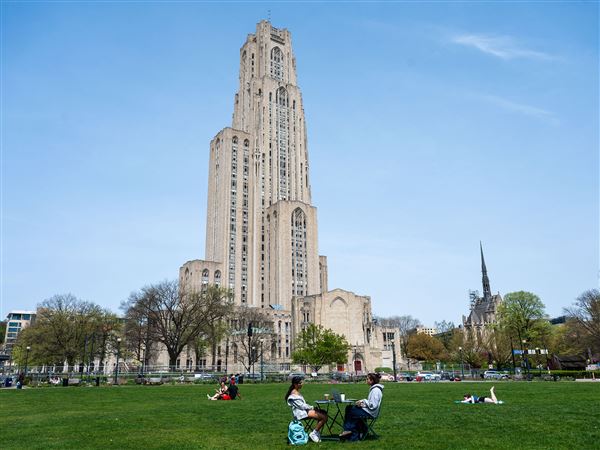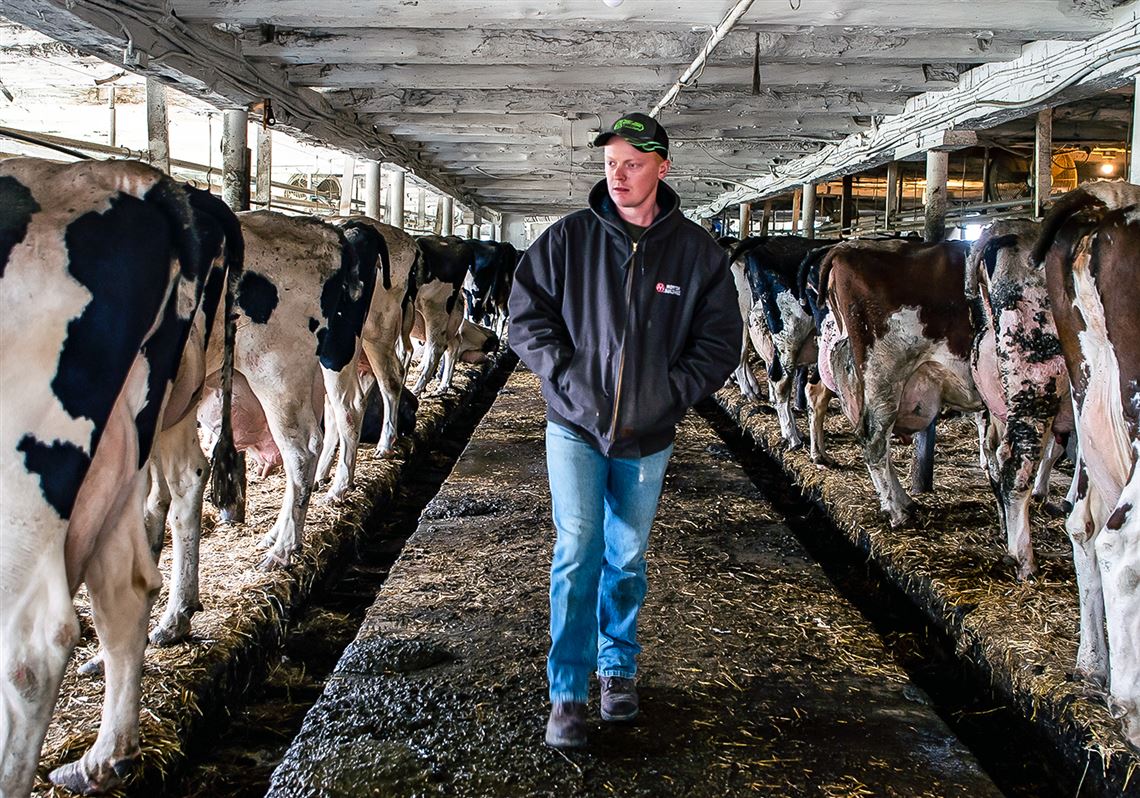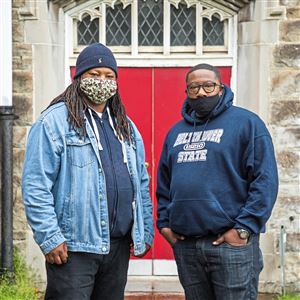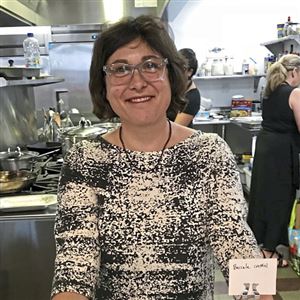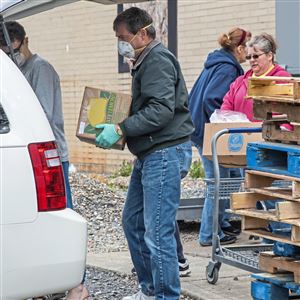19 Neighbors is a series of 19 stories about Western Pennsylvanians and how they are helping, hoping and coping during the COVID-19 pandemic.
Even if they couldn’t see William Thiele’s face behind his surgical mask, drivers couldn’t miss the dairy farmer’s message as he helped load food and gallons of milk into their cars last week at Big Butler Fairgrounds:
“QUESTIONS? #ASKAFARMER NOT GOOGLE!”
And what does that sign mean?
“It means that whenever you have a question that’s agriculture-related, you're supposed to ask a farmer, not Google, because sometimes Google has a different take,” he said. “I always want to convey the truth to the public about agriculture.”
For 152 years, the 26-year-old man’s family has worked and lived on these 300 acres and tended to the animals of Thiele Dairy Farm in Cabot, Butler County.
“I’m a sixth-generation farmer along with my brother. We’ve been here since 1868,” he said. “We’re just a small farm. We milk about 40 cows. Now that’s tiny compared to a lot, but no matter what size farm you are, I think it’s important to help with something like this.”
Mr. Thiele was among 75 volunteers working with the Greater Pittsburgh Community Food Bank on April 28 to distribute food to Butler County families in the wake of COVID-19, which has shuttered businesses, pushed people to the unemployment rolls and created food insecurity here and nationwide.
The pandemic has also put hot lights on the shockingly fragile nature of the nation’s food supply chain. Schools closed first, and with them went the demand for milk and other food products for daily lunches. Restaurants have either closed or operated at minimal takeout capacity for nearly two months. Across the country, meat processing plants have been shuttered because of coronavirus outbreaks among workers. Truck drivers and grocery workers have fallen ill; some have died.
Farmers, both on the family and industrial level, find themselves with a glut of perishable products that they cannot sell and aren’t able to donate. The nation’s largest dairy cooperative, Dairy Farmers of America, estimates that farmers are dumping as many as 3.7 million gallons of milk each day, according to The New York Times.
Mr. Thiele has had to dump milk and felt the proverbial gut punch of seeing time, energy and resources go to waste.
“It's sickening, to be blunt,” he said. “It’s watching our money go down the drain.”
Thiele Dairy Farm ships its milk to Marburger Farm Dairy in Evans City. “They told us to cut back 15% of normal production.”
But it’s not that simple.
“We grow corn and soybeans, and we can leave it in the bin for another month or whatever. But you have to milk the cows twice a day no matter what. You can’t just turn them off.”
The Thiele family’s herd yields about 1,500 gallons of milk a month, so that’s roughly 225 gallons a month that can’t go to market. They drink some of the raw (unpasteurized) milk at home, but they can’t donate or sell it, because they are not licensed to do so. The state Department of Agriculture has strict regulations for raw milk production because of issues with potential pathogens.
Rather than waste it, the Thieles are mixing it in with feed for the cows, who typically get just water.
“That’s an extremely expensive feed additive,” he remarked.
Mr. Thiele is on the board of directors of the Butler County Farm Bureau, a lobbying organization that advocates for agricultural issues with local, state and federal legislators.
“With the meat packing plants shutting down, that's impacting small farms, large farms, medium-sized farms — all of agriculture. It’s really putting a hurting on us. But in the end this whole pandemic, I think, really is giving agriculture a good name, that we are local and supporting the public.
“I think people see that our local farms need help. The stories of dumping milk or plowing under vegetables, is just sad, really,” he said.
“People want to buy local to contribute to their local farms, and having us farmers out at something like this [food distribution] shows the public that we care and that we farmers are out there to provide a safe food source.”
Mr. Thiele said he hopes that if there is some small good to come out of this crisis, it’s that consumers begin to appreciate what is involved in getting food to their tables.
“I hope the general public really has their eyes opened by this and gets a better understanding of what it takes to make a gallon of milk or that loaf of bread or grow that apple,” he said. “I just hope that people have a much better grasp of what it takes to do all this and that hey, these people in agriculture, they really are good, hard-working people.”
Dan Gigler: dgigler@post-gazette.com; Twitter @gigs412.
First Published: May 6, 2020, 11:28 a.m.






